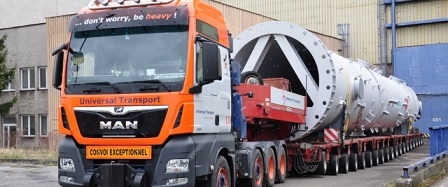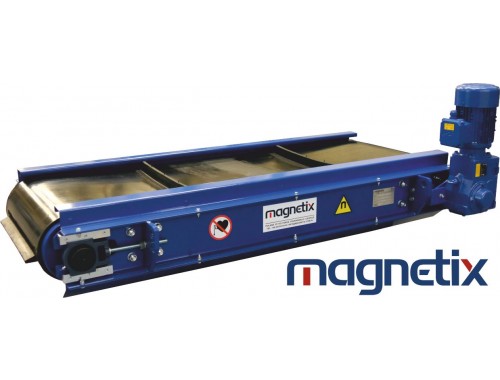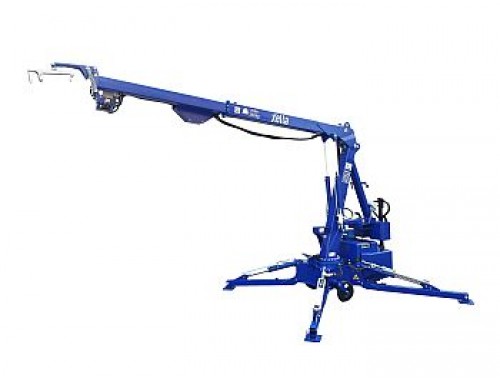Road vs. rail transportation - what are the advantages of each?
Road and rail transportation are currently the most widely used ways to transport cargo domestically and internationally. Which is more cost-effective? We outline the aspects to consider to make an informed, beneficial decision from a business perspective.
What is in favor of choosing road transport?
One of the most significant advantages of road transport is that the route goes from the starting point to the destination - from door A to door B. This means there is no need to arrange additional cargo transportation from the station to the door of the warehouse or yard where it is to be unloaded.
This solution also provides the investor with relative freedom when unexpected difficulties arise. A traffic accident, a change in traffic organization due to repairs, or even obstructions caused by weather factors (e.g., branches cluttering the roadway after a gale) - nothing will prevent the transportation from being completed. All it takes is a quick change to a new route for the order to be completed on time - regardless of circumstances that cannot be predicted.
Freedom can also be interpreted as the ability to carry out transportation daily and at any hour. It all comes down only to the availability of a driver and loading and unloading people. You can continue the trip if you can provide the necessary personnel. The realization of an express service should not be a problem.
A large number of shipping companies install GPS transmitters in their vehicles. This allows real-time tracking of the road transport route, which in turn translates into easy planning of unloading and further processes.
Road transport is suitable for transporting a variety of cargoes. Even potentially hazardous or toxic materials requiring appropriate safety measures should not be a problem. If specific requirements are met, it is also possible to transport oversized cargo this way.
Rail transportation - advantages and disadvantages
Although railroads are not always associated with punctuality and reliability in the context of passenger transportation, rail transportation of goods is prevalent. The most significant factor in this is the relatively low unit cost. Significantly, it decreases as the distance increases, so it is perfect for long distances.
It also doesn't matter how oversized the cargo is in rail transportation. This makes the solution a good choice when transporting a single pallet and loading the entire vehicle. This also creates room for transporting heavy and oversized goods.
The train is also considered a reliable means of transportation. At the very least, it is not affected by difficulties associated with inclement weather, such as icy roadways or heavy rain hampering drivers' visibility. The only delays may be due to technical problems, such as catenary failure or the uncertainty of another train set.
Attention should also be paid to the safety of cargo transported by rail. While a truck can stop almost anywhere, a train only stops at designated stations. With additionally sealed wagons, the chance of the cargo arriving intact is very high.
In the context of safety, it's also worth considering accident statistics. In 2022, there were 24 accidents at railroad crossings involving cars and pedestrians. By comparison - in the same year, there were 21,322 road accidents, and of these:
- 1,043 were caused by drivers operating vehicles up to 3.5 t,
- 648 were caused by drivers driving cars with GVW over 3.5t.
The environmental aspect is also significant. After all, the electric train is almost zero-emission and generates a much lower carbon footprint than road transport, where high emissions into the environment are involved.
However, it is worth bearing in mind that the possibility of using this mode of transport depends on the layout of the rail network, which only sometimes reaches smaller towns. In addition, it is necessary to organize the transportation of goods from the station to the destination, which generates further costs.
Road or rail transportation? How about a compromise?
It is clear from the above that both solutions have advantages and disadvantages. Road transport is a more favorable option for relatively small cargo that needs to be transported over a short distance. On the other hand, for longer routes and larger volumes, it may be more sensible to use rail transportation. Thus, road transport is worth considering as a complement to rail transport, not an alternative.
When looking for the optimal logistics solution, it is worth relying on the support of professionals, such as the transportation and logistics company AsstrA. Thanks to a personalized approach, it is possible to tailor activities to the specifics of any business, regardless of its size and nature. This, in turn, guarantees proper and timely services and saves money in the financial context.































